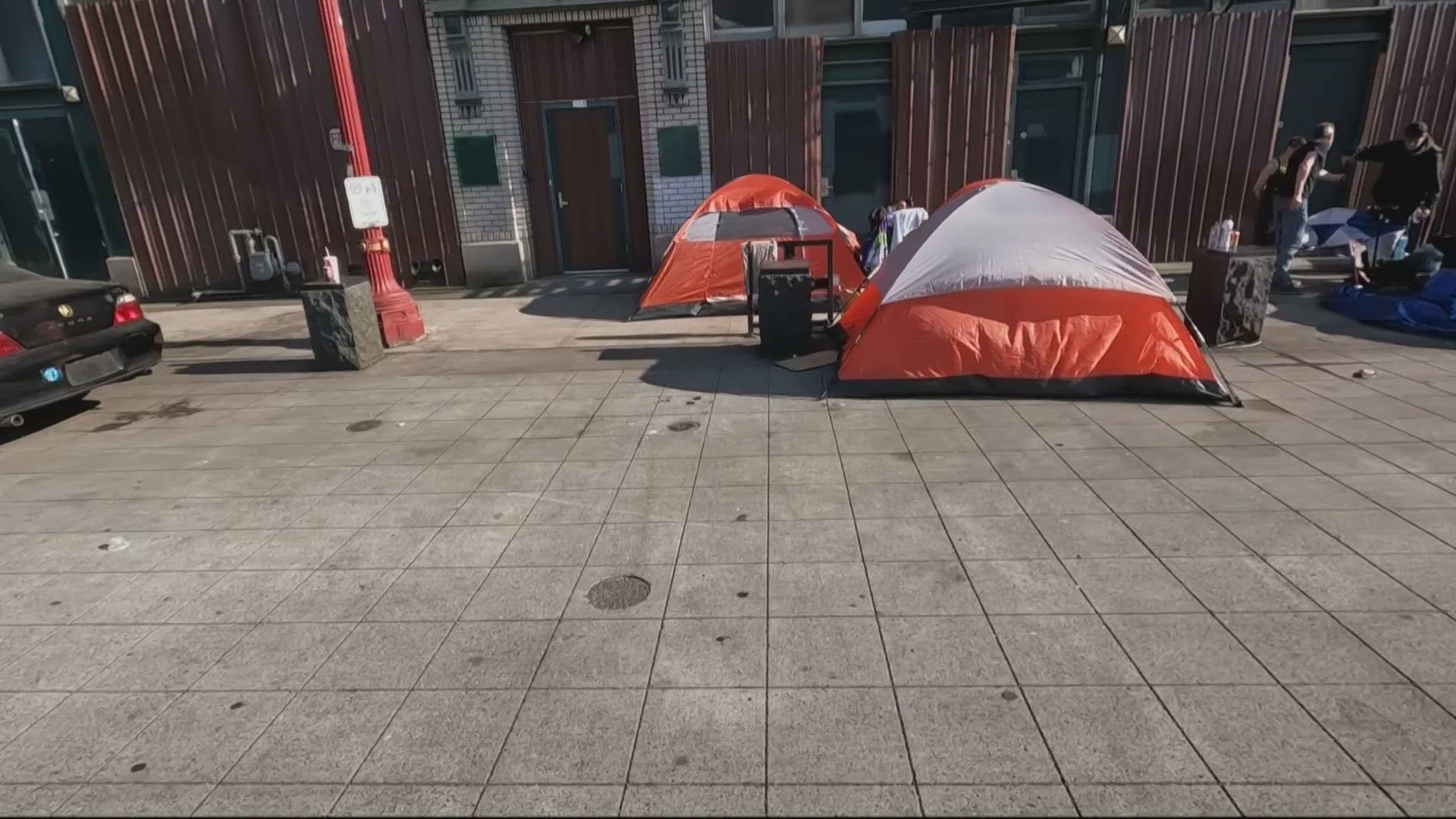PORTLAND, Ore. — Portland has reached a tentative settlement in a lawsuit that claimed the city is violating the Americans with Disabilities Act by failing to prevent homeless camping along its sidewalks, according to the plaintiffs' attorneys and Mayor Ted Wheeler's office.
The settlement still needs to be approved in federal court and adopted by the Portland City Council. The council is expected to take up the issue next week, according to the city.
A group of ten residents sued the city in September, arguing that tents and detritus make pedestrian areas impassable for people with mobility disabilities, violating their right to equal access to sidewalks under ADA and the federal Rehabilitation act.
"When I first became disabled in 1988, it took me three weeks to realize how badly I was injured and that my life is never going to be the same. It took me two years to realize that by virtue of my disability, I was now a second class citizen," said Tiana Tozer, one of the plaintiffs in the suit. "We have a large number of people with disabilities and we choose to live here because of the public transportation system. I chose Portland.
"I always felt that Portland was a very disability-friendly city and then all of the sudden it was like… It was not."
The plaintiffs sought an injunction requiring the city to remove encampments and debris from sidewalks and make sufficient shelter space available for people displaced by the removals. The parties announced in November that they had agreed to mediation to try to avoid taking the case to a courtroom.
According to a copy of the settlement agreement provided by the plaintiffs' attorneys, the city will prioritize removal of camps on sidewalks by making sure those camps account for at least 40% of overall removals each year for the next five years.
The city will also commit to removing at least 500 campsites from sidewalks each year unless there are too few to hit that target, and devote a minimum of $8 million to removals for the 2023-24 fiscal year and $3 million per year for the following four years.
Other terms outlined in the settlement document:
- The city will establish a 24-hour sidewalk camp reporting option through 311 and an online portal, with a streamlined process for people with mobility disabilities to request ADA accommodations.
- The city will be required to send a staffer or contractor to assess a site within five business days of a report, and all report data must be consolidated in a single tracking database of reported sidewalk camps.
- The city will not provide tents or tarps to homeless residents except under certain specific circumstances, effectively agreeing to continue a policy that Commissioner Rene Gonzalez put in place earlier this year.
- The city will post "no camping" signs in areas where there have been at least three campsite removals and at least one ADA accommodation request in a given month.
- The city will pay each plaintiff $5,000 in compensatory damages plus attorney fees, and will provide quarterly written reports on its compliance with the agreement.
"We are members of your community, and we deserve the same respect as the homeless and our able-bodied counterparts," said Tozer. "I think that the entire leadership, including Multnomah County, needs to think about how the tents and tarps and allowing camping on the sidewalks is impacting one of the most vulnerable groups that live in Portland."
Portland Mayor Ted Wheeler announced last week that he was developing a plan to ban camping on city property between 8 a.m. and 8 p.m., as well as at all hours near schools, day care centers and shelter sites. That policy is not one of the terms of the settlement, according to the plaintiffs' attorneys, but they wrote in an email that it will "work hand in glove" with it.
Wheeler's proposal is seen as the first step toward a total ban on unsanctioned camping, which he announced as a goal last year. The total ban would be paired with the opening of six large-scale sanctioned camp sites. None of those sites have opened yet, although Wheeler has announced a location and administration plans for the first of them.
The council also voted Wednesday to add about $2.6 million to Central City Concern's existing $878,000 budget for camp removals.

